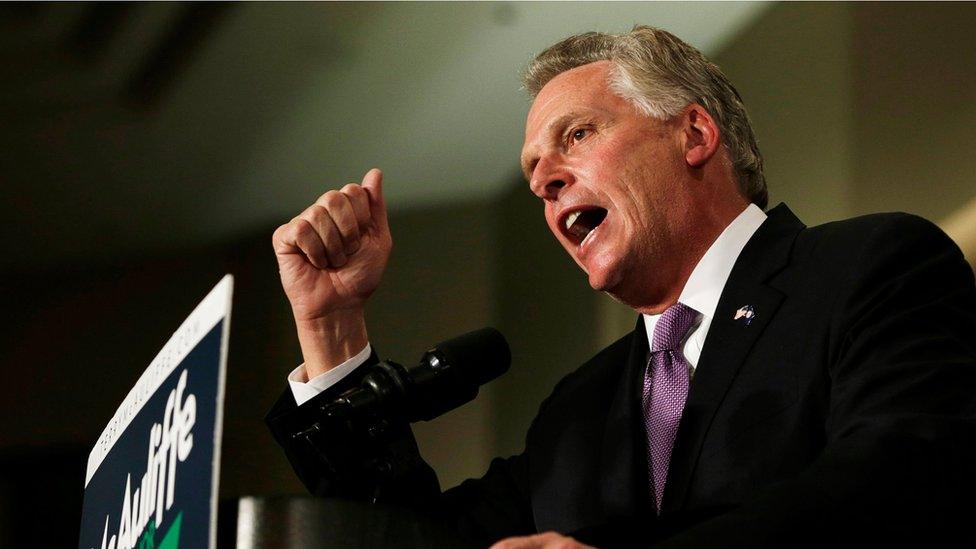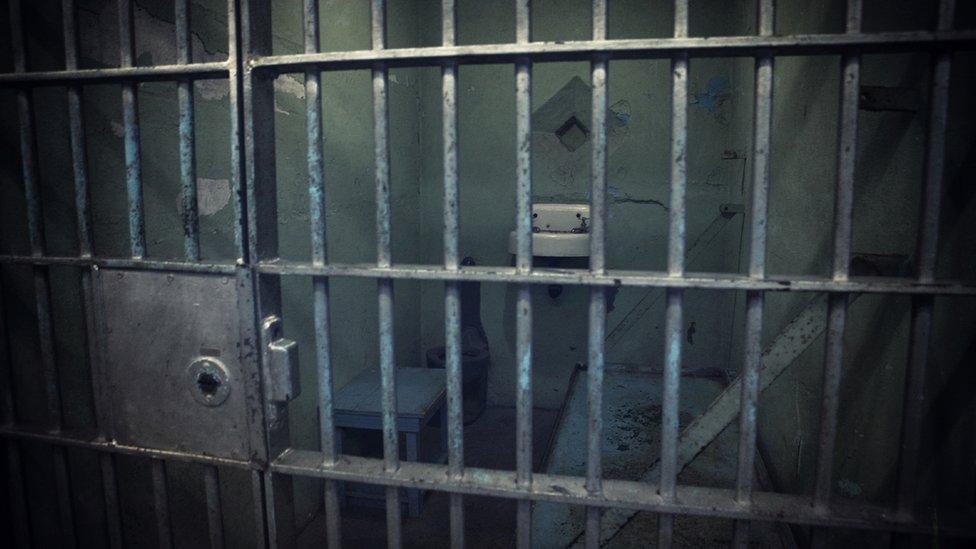Virginia restores voting rights to over 200,000 convicts
- Published

Governor McAuliffe's action is believed to be the largest of its kind
The governor of the US state of Virginia has issued a sweeping executive order, restoring the right to vote to more than 200,000 convicts.
In the US, many states restrict the voting rights of people convicted of serious crimes upon their release.
Critics say the policies are unfair and disproportionately affect black men.
Governor Terry McAuliffe, a Democrat, said the move was meant to help undo the state's long history of trying to suppress the black vote.
Almost six million Americans cannot vote because they were convicted of a felony - typically a charge that carries a prison sentence of more than one year.
Activists said Governor McAuliffe's order to restore voting rights is the largest of its kind in the US.

Many US states restrict the voting rights of people convicted of felonies
"Too often in both our distant and recent history, politicians have used their authority to restrict people's ability to participate in our democracy," Governor McAuliffe said.
Governor McAuliffe said he consulted with legal experts who determined that he had the authority to restore voting rights. However, his action is likely to be challenged by the Republican-led legislature.
Virginia is considered a swing state in the coming presidential election and the move to expand voting rights of people convicted of felonies could benefit Democrats.
Governor McAuliffe is also a close ally of Hillary Clinton, the likely Democratic nominee for president.
"The singular purpose of Terry McAuliffe's governorship is to elect Hillary Clinton president of the United States," Virginia House Speaker William J Howell said. "This office has always been a stepping stone to a job in Hillary Clinton's cabinet."
Under the order, those included will now also be able to run for public office, serve on a jury and become a notary public. To register to vote, they must not be in prison, on parole or on probation.
Laws restricting voting rights of people convicted of felonies vary across the US.
Three states - Florida, Iowa and Kentucky - bar people convicted of felonies from voting permanently. Meanwhile, two states - Vermont and Maine - have no restrictions on people convicted of felonies.